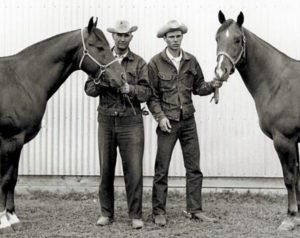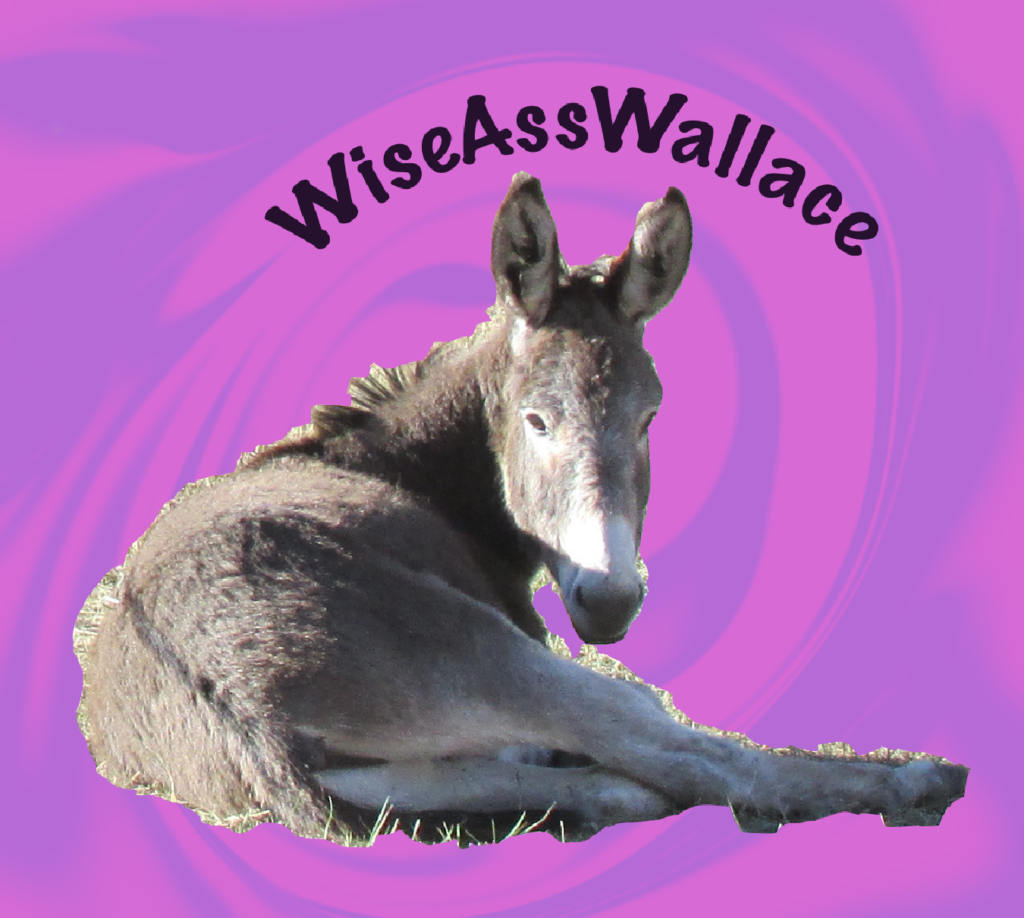 WiseAssWallace, a regular guest columnist for BestHorsePractices, has got himself in a twist over the advanced intelligence of humans.
WiseAssWallace, a regular guest columnist for BestHorsePractices, has got himself in a twist over the advanced intelligence of humans.
“For all their smarts, says WiseAssWallace, “Humans can sure get going down some brambly, ill-begotten paths. I’m talking nonsensical stuff, folks!”
He had a little help from author Ali Almossawi and his book, An Illustrated Book of Bad Arguments. Learn the Lost Art of Making Sense.
WiseAssWallace continues:
Folks, unlike us equines, you are blissfully endowed with a developed frontal lobe. That means you have an ability to strategize and contemplate. You can romanticize and intellectualize, too. But can you pleeaazzee use your brain in a way that doesn’t embarrass yourself? C’mon, folks. Steer clear of bad arguments. They’re like knotted manes, manure-covered coats, and untrimmed hooves. They make you look bad. Here are some simple examples of how you brainiacs got things backASSwards:
Argument from Consequences

Amy Skinner visits with one of us
Explanation of faultiness: Just because an argument leads to an unfavorable result, doesn’t mean it’s wrong.
The Screwy Logic example: Tie downs (also known as martingales) are okay. I don’t want to stop using one on my horse because then he’ll throw his head all around. Besides, it won’t look good.
WAW Wisdom: Using a tie-down can create insane brace and balance issues for your horse. It results in what Amy Skinner calls an “upside down” horse. It’ll take a long time to bring your horse back from such ill treatment and your horse may indeed throw his head around with this new freedom. It will come down to better, lighter, more patient training on your part.
As for “it won’t look good”? Deal with it. Your horse will thank you.
Appeal to Irrelevant Authority
Explanation of faultiness: An appeal to authority is an appeal to one’s sense of modesty…
Ancient authority, believed to be true just because it originated some time ago.
 Screwy Logic example: For generations, horsemen have given their horses grain to build muscle and stamina. So, it’s good to give grain.
Screwy Logic example: For generations, horsemen have given their horses grain to build muscle and stamina. So, it’s good to give grain.
WAW Wisdom: Just because horsemen of yesteryear gave their horses grain, doesn’t mean it was the best thing to do.
And another thing: horses back then had vastly different lives than most horses do now. For starters, most were used many hours a day and were not kept in stalls. They may have needed extra calories that grain could provide and they were at less risk for colic because they were moving a lot and not kept in stalls.
Not a Cause for a Cause
Explanation of faultiness: Assumes a cause for an event when there is no evidence for it.
Screwy Logic example: This week, I chewed raspberry-flavored bubble gum during all my rides. My horse was calm and agile every time. Therefore, my horse loves raspberry-flavored bubble gum.
WAW Wisdom: Your horse may have done better for any number of reasons. It could be that chewing gum distracts you from trail anxieties. It could be that chewing gum relaxes you and helps you to be a clearer communicator and better partner for your horse. You can love raspberry-flavored bubble gum for what it does to you. Have the awareness to appreciate how it modifies your movement and behavior.
Appeal to Fear/Slippery Slope
Explanation of faultiness: Describes a series of terrifying events that will occur as a result of accepting a proposition without clear causal links between these events.
Screwy Logic example: We can’t possibly put all our horses together. They will get rowdy and physical. They might get hurt. That’ll be scary. We’ll have to call a vet when one of them (or more!) gets hurt. That will be expensive. Therefore, our horses must be kept separately.
WAW Wisdom: It’s true that horses can be physical and rowdy when they are first put together. But remember: horses are herd animals and benefit from being together. Research on the health and social benefits of group horse management is substantial. Whatever negative consequences your horses may experience at their initial group introduction will be outweighed by their improved well-being in the long run.
Hasty Generalization

Social media ain’t a reliable source for information
Explanation of faultiness: Forming a conclusion from a sample that is either too small or too special to be representative.
Screwy Logic example: All my Facebook friends blanket their horses, therefore I can conclude that blanketing is proper winter horse care.
WAW Wisdom: Chances are good that your Facebook friends have a similar education, income, and cultural background as you do. Guess what? Five thousand Facebook friends can be similarly wrong. Social media is a crazy avenue for assessing best practices. The platform is set up for agreement and affirmation. If you’re looking for answers to best practices questions, consider social media last.
Appeal to Ignorance
Explanation of faultiness: I don’t know what it is, so it must be X. An appeal to ignorance is to assume a proposition to be true, because there is no evidence that it is false. It confuses an absence of evidence as evidence of absence.
Screwy Logic example: My horse can’t canter. He never canters in the pasture with his pasture mates. When I ride him, he won’t canter. When my friend rides him, he won’t canter, either. Therefore, he can’t canter.
WAW Wisdom: Trust me, Silver can canter. He can gallop, too. Horses in the pasture are usually interested in conserving their energy. Cantering takes more energy than trotting, so unless he’s particularly unsettled, he won’t have a reason to move faster than a trot.
As for not cantering under saddle, there are any number of reasons:
It could be that you’re not communicating well your request for a canter. Are you asking with your legs, but holding him back with your hands?
Are you subconsciously afraid to go faster?
Think about it, folks, but let your brain stay out of its own way. I’m WiseAssWallace and I guarantee it.
Read more WiseAssWallace here.

ahh the logical fallacies – well played Wallace, well played
LOL!! This is so funny. Thanks for my daily laugh WiseAssWAllace!